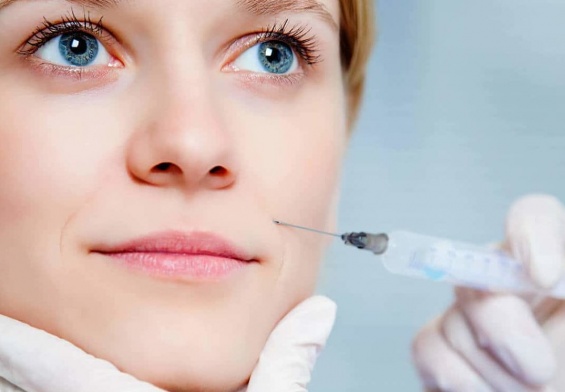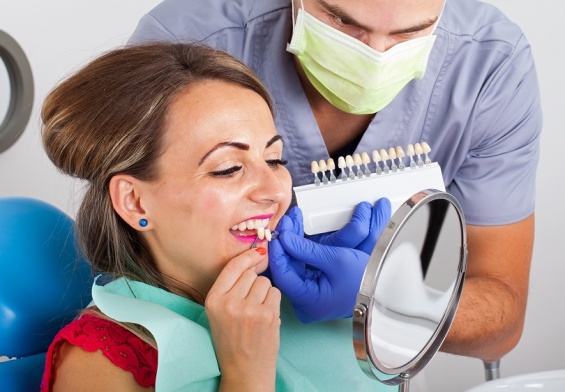Even the top dentists in NJ have a responsibility to keep their patients safe. But how do they do that? It takes much more than just clean tools, friendly faces, and expert knowledge of oral anatomy.
The fabric of patient safety in NJ has protocols for infection control, emergency preparedness, and medication safety weaved in. They’re all in place to keep patients away from avoidable risks like infections, allergic reactions, and other mid-treatment complications.
In this guide, we’ll walk you through the key ways that the best dentists in NJ are keeping patients protected. We’ll cover everything from state-mandated safety gear to advanced imaging practices and smart prescribing habits.
What Does “Patient Safety” Really Mean at the Dentist?
When most people think of patient safety, they picture hospitals, surgeries, or complex medical emergencies. But, dental care falls under that umbrella, carrying its own unique set of risks, requiring its own version of safety.
In the dental setting, patient safety means preventing harm during every part of care. That includes sterilizing tools, managing medications, monitoring vital signs, and being ready for emergencies.
It also involves communication. Dentists and hygienists must explain procedures clearly, gain informed consent, and answer questions in plain language. This helps patients feel confident and avoids confusion that can lead to mistakes.
The best dentists in New Jersey design systems that reduce obvious and hidden risks. When they provide consistent, clean care and expect the unexpected, they’re steering clear of infections or injuries for their patients.
Safety Starts with Emergency Readiness
Emergencies seldom occur in dental offices, but they strike quickly when they do. Sudden, life-threatening situations like allergic reactions, low blood pressure, or cardiac events can burst onto the scene during treatment.
That’s why New Jersey law requires dental practices to maintain specific emergency equipment and training. These regulations apply to any office that treats patients on-site. Furthermore, they support fast, effective response when needed.
According to N.J. Admin. Code § 13:30-8.26, every NJ dental office must have:
- A written emergency protocol that guides staff through critical steps to take during a medical or dental emergency.
- A portable oxygen system with full-face masks for adults and children to support patients experiencing respiratory distress.
- A bag-valve-mask system that allows staff to provide manual ventilation when a patient is not breathing properly.
- An automated external defibrillator (AED) that delivers life-saving shocks to restore normal heart rhythms during cardiac events.
- Battery-powered lighting and monitoring equipment that ensures visibility and vital sign tracking even during a power outage.
- Annual emergency training for all staff to keep everyone prepared, confident, and capable of using the equipment correctly.
Safety doesn’t end when the procedure does, especially if sedation is involved. Find out whether you can drive after sedation dental treatment.
These requirements forge care teams into potential emergency responders with nerves of steel. Some NJ dentists also test their teams’ readiness with drills, routine checks, and hands-on team instruction.
Rethinking Dental X-Rays
Dental X-rays help identify issues like cavities between teeth, jawbone loss, and hidden infections. There’s not much radiation involved, but it still takes care to keep patients safe.
In 2024, the American Dental Association (ADA) released updated safety recommendations for dental radiography. These changes reduce exposure, improve image quality, and make sure imaging happens only when it’s necessary.
The best dentists in New Jersey apply these recommendations by using digital technology and individualized assessments. They avoid routine or unnecessary X-rays. Moreover, they follow safety-first techniques in every case.
According to the ADA’s guidelines, safe imaging practices include:
- Taking X-rays only when necessary, based on a patient’s specific condition or treatment plan.
- Using digital imaging systems to cut radiation and avoid the need for chemical film processing.
- Avoiding lead aprons and thyroid collars, which may interfere with image quality and lead to repeat exposures.
- Keeping the X-ray beam in a rectangular shape to avoid bleed-through and focusing only on the area of interest.
- Positioning the patient to ensure a clear image without the need for retakes.
- Avoiding cone-beam CT scans unless justified, due to the higher radiation dose involved.
Years of clinical research and expert consensus went into these new guidelines. By following them, top NJ dentists limit risk and improve outcomes.
Imaging is just one piece of a broader safety system. Similarly, infection control is another area where standards matter just as much.
Infection Control
Infection prevention is a key part of safe dentistry. Every time a patient sits in the chair, the dental team must follow procedures that stop the spread of harmful germs and keep treatment areas clean.
The Centers for Disease Control and Prevention (CDC) provides clear, science-based infection control guidelines for dental offices. These include precautions for hand hygiene, surface cleaning, and instrument sterilization.
Top dentists in New Jersey follow these protocols closely. They train their teams to be consistent in carrying out these tasks. Also, they document them as part of routine operations.
According to CDC and OSHA standards, essential practices include:
- Washing hands thoroughly and using gloves, masks, and eye protection to reduce the risk of spreading germs between people.
- Sterilizing instruments between every patient using heat and pressure to kill all bacteria and viruses.
- Disinfecting surfaces and equipment after each use to prevent contamination in treatment areas.
- Using sterile water during surgical procedures and maintaining safe water lines for routine care.
- Following clear protocols for handling sharps and medical waste to avoid injury and cross-contamination.
- Training all staff members annually in current CDC and OSHA infection prevention standards.
These procedures aren’t left to chance. The best dental practices in NJ bake infection control into the very core of their operations.
Some patients may need extra precautions based on chronic pain or jaw conditions. If you’re wondering what TMJ is and how it affects dental care, here’s a quick guide.
Everything from cleaning protocols to staff training fits into the schedule. When that’s the case, they shield patients from dangerous infections.
Antibiotics and the Rise of Superbugs
You might be surprised to learn that dentists write a significant share of outpatient antibiotic prescriptions in the United States. In fact, dentists account for roughly 1 in 8 of those prescriptions each year.
Identifying the right treatment is the first step toward safe recovery, especially for patients dealing with cracked teeth, infections, or decay. Explore what issues restorative dentistry in New Jersey can fix.
Antibiotics are necessary to prevent infection after certain procedures or treat dental-related infections. But, overprescribing them contributes to antibiotic resistance, which makes infections harder to treat.
The New Jersey Department of Health and the CDC have both raised concerns about unnecessary dental prescriptions. Some antibiotics are still prescribed as a precaution. Unfortunately, this happens even when there’s no strong evidence that they’re needed.
To reduce risk, New Jersey’s best dentists follow the CDC’s “Four Ds” of antibiotic safety:
- Right Drug: Choosing an antibiotic that targets the specific bacteria likely to cause the infection.
- Right Dose: Prescribing the correct strength to be effective without increasing side effects.
- Right Duration: Limiting treatment to the shortest period necessary to clear the infection.
- Right Diagnosis: Ensuring there is a clear clinical need for antibiotics before prescribing.
These practices neuter the chance of side effects and the spread of resilient bacteria. Many dentists also educate their patients about when antibiotics are helpful and when they’re not.
Responsible antibiotic use is now part of everyday dental decision-making. It’s not just about writing fewer prescriptions. Instead, it’s about using them wisely, and only when they’re needed.
How the Best Dentists Keep Getting Better
Patient safety isn’t just about following rules. Rather, it’s about making safety part of the culture. In New Jersey’s top dental offices, that culture shows up in the way teams train, test, and grow.
Dentists who focus on safety build systems to track what’s working and what needs improvement. They regularly review protocols, gather patient feedback, and look for small adjustments that can prevent bigger issues.
Many dentists also adopt cutting-edge tools like AI diagnostics and 3D imaging to improve safety and precision during care. Learn how the best dentists in NJ are embracing AI and 3D tech.
Leading dental teams commit to continuing education, stay informed about new guidelines, and invest in tools that make care safer and more efficient.
This kind of attention to detail creates a more consistent patient experience. It also helps dental teams stay ahead of risks that might otherwise go unnoticed.
Questions to Ask Your NJ Dentist About Safety
If you’re visiting a new dental office, or even returning to a familiar one, it’s okay to ask how they keep patients safe. The answers you get can help you feel more confident about the care you receive.
Most dentists welcome questions about safety and are happy to explain their protocols. Asking these questions can start a productive conversation and bring your value of your health front-and-center.
Here are a few helpful questions you can bring to your next appointment:
- Can you walk me through your emergency response plan and the equipment your team uses?
- What steps do you take to reduce radiation exposure during dental X-rays?
- When are antibiotics considered necessary, and how do you decide when to prescribe them?
- How are instruments cleaned and sterilized between patients?
- How often do your staff complete training on infection control and emergency procedures?
If you’re planning a cosmetic treatment like whitening, it’s also worth asking about recovery steps. Here’s what to eat after teeth whitening in New Jersey.
The way your dentist responds to these questions can tell you a lot. Clear, specific answers show that safety is a core tenet of their practice.
Safety Sets the Best Apart
Great dental care isn’t just about technique. Rather, it’s about creating an environment where safety is part of every decision. From sterilizing tools to managing emergencies, the best dentists in New Jersey follow proven systems that protect their patients.
These practices are built into how top dental teams work, communicate, and deliver care every day.
If you’re searching for the best dentist in NJ or top dentist in NJ, ask how they handle in their office. A strong answer can give you confidence that your health is in good hands.
Choosing a dentist who puts safety first isn’t just smart. It’s essential for long-term peace of mind.
Resources
https://www.law.cornell.edu/regulations/new-jersey/N-J-A-C-13-30-8-26
https://www.cdc.gov/dental-infection-control/media/pdfs/2024/07/safe-care2.pdf
https://www.nj.gov/health/cd/documents/topics/ar/as_dental_toolkit_updated_41725.pdf




